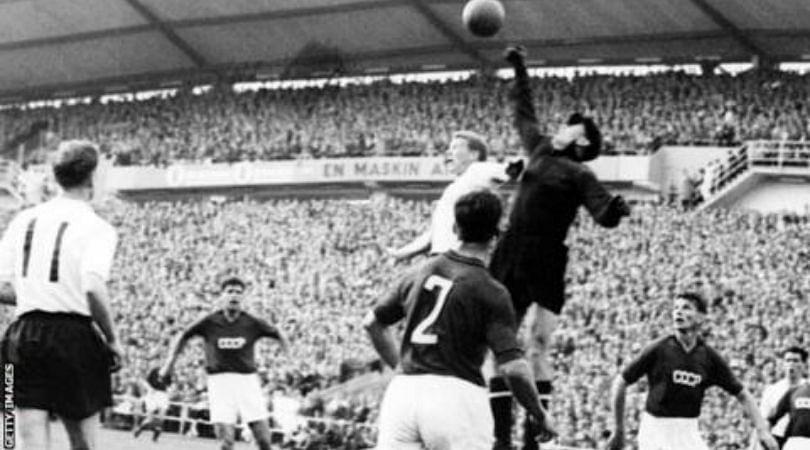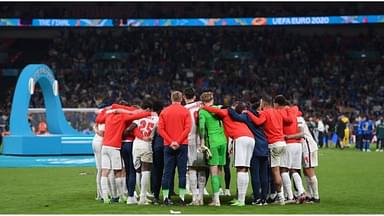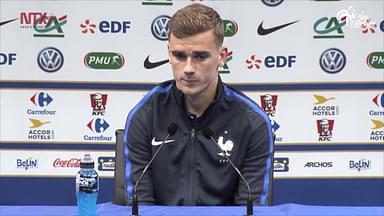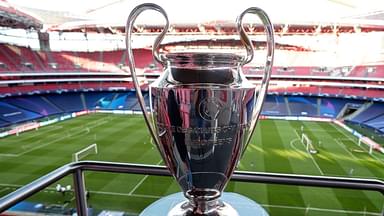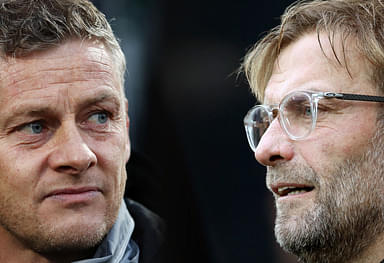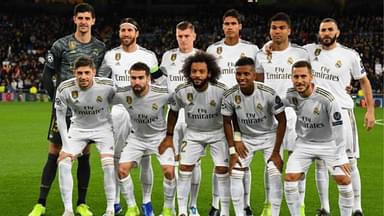UEFA Euro: Europe’s biggest football competition has its own charming history, with its 60 years about to complete, we take a look back.
The 60th year of the UEFA Euro was about to be celebrated across Europe with the kick-off of this edition of the tournament but with the outbreak of the Coronavirus, it has been delayed to the following year.
The UEFA Euro was first played in the year of 1960 in France, at that time it included only 4 teams (France, Czechoslovakia, Soviet Union and Yugoslavia).
Since then the tournament has never looked back and kept on growing in the following years, and now is held after the FIFA World Cup in terms of prestige.
Even though the tournament was first played in 1960, the idea behind it is much older. It dates back to 1927 when the French Football Federation’s administrator Henri Delaunay first proposed a pan-European football tournament.
He later went onto becoming the first General Secretary of UEFA, he was already passed away by the time the tournament started. Since then, the tournament has held 15 editions with Spain and Germany tieing with an equal number of trophies (3), followed by France at 2, rest have won only once.
With this, we will go through the initial years of Euro and will read how the game progressed to be the product of today.
1960: The first kick-off
The first edition of the tournament was held in France and laid the first brick to the future prestige of the tournament. After an intense qualification round between 17 nations, four teams ended up into the finals of the Euro 1960, although there were a bunch of important nations who refused to participate.
England, Scotland, Wales and Northern Ireland were not interested, while Italy, the Netherlands and 1954 World Cup winners West Germany also declined.
Amidst all of this, political tensions were also high between the nations, who were trying to co-exist in the new world after the second world war.
In the second round of the qualifying, USSR got a walkover after Spain refused to play them for political reasons. The first game to be played in the Euro finals is till date the highest-scoring match in the finals of this competition.
Yugoslavia and France played an intense match which ended up with the final scoreline of 5-4, which the former won to enter into the finale. In the second match, Czechoslovakia was thrashed by the Soviet Union by 3-0.
The match for the third place once again broke the French fans’ hearts as Czechoslovakia defeated the hosts by 2-0 in the game, a certain embarrassment as they ended last among the four teams.
The first final of the tournament was between Yugoslavia and the Soviet Union, which was played on the 10th July 1960, the socialist state defeated Yugoslavia by 2-1 after an exhaustive game between the two teams.
The first goal was scored by Yugoslavia’s Milan Galic in the 49th minute, but USSR made a quick comeback and Slava Kalistratovich Metreveli scored to level the game.
With this, the game went onto the extra time, and it took a series of fine saves from Lev Yashin to keep the USSR in the game. The final looked to be heading for a replay until 23-year-old SKA Rostov-on-Don striker Viktor Ponedelnik notched the winner.
He later told UEFA.com: “The Soviet national team became the first-ever European champions. No one can forget such moments of glory. As for myself, that 113th-minute winner was the most important of my whole career. That was the star moment of my life.”
After winning the Euro, USSR’s players were feted at an Eiffel Tower reception after the game, where Ponedelnik remembered meeting Real Madrid president Santiago Bernabéu. “He was ready to buy half of our squad with no hesitation. We avoided the conversation …”
In the 4 games played in the tournament, 17 goals were scored, giving an average of 4.25 goals per game, by far the highest hit-rate in any edition of the competition. Hence, giving a momentous start to the cup.
1964: The mighty return
The previous edition of the competition contributed massively to the popularity of the competition, as the number of teams participating for the qualification rose to 29 from 17.
Although, Greece later withdrew from the competition due to political tensions with Albania, as both teams were paired together. Spain were the hosts for the finals of the tournament.
Luxembourg was among the stars of 1964 qualifying: they eliminated the Netherlands, and Denmark required a replay to deny them a finals place. The Red Lions did not win another EURO qualifier until 1995.
After the qualifications, Spain, USSR, Hungary and Denmark managed to go ahead. The first game between Spain and Hungary turned out to be an intense contest while the match went onto the extra-time.
Jesús María Pereda struck the first goal of the finals, 35 minutes into Spain’s semi-final against Hungary. Pereda later told UEFA.com: “The 1960 side with [Alfredo] Di Stéfano and [László] Kubala had more talent, but it’s not the names that count in football, it’s the team … We were all on form and the task of the coach was to assemble these players and ensure they worked well as a unit.”
Late in the 84th minute, Ferenc Bene scored the equalizer, hence adding more minutes to the game, but a goal by Amancio Varela, 8 minutes before the final whistle sealed the finale berth for the Spaniards.
On the other hand, it was a comfortable outing for the defending champions as they defeated Denmark by 3-0. Therefore, taking USSR into the finale once again.
The third-place playoff also went to the extra time, but in the end, Hungary managed to score 2 more goals in the extended minutes to at least leave the tournament with dignity.
Whereas the match between the Soviet Union and Spain took an exciting start, as the spectators witnessed 2 goals in the first 8 minutes of the game, the scores remained same until Marcelino met Pereda’s cross for the 84th-minute winner.
“We really were a good unit,” said Pereda. “We had Luis Suárez to conduct the orchestra. Then we had great players like Amancio and Marcelino, who was a natural goalscorer. It was a fantastic squad really.”
Spain became the first team to win the tournament at home, which was later repeated by Italy in 1968. It was a special night for Spain’s Luis Suarez who became the first player to win the European Cup and the Euro in the same summer.
Meanwhile, Denmark’s Ole Madsen was on fire during the qualifying stage of the tournament but failed to make an impact in the finals, but his talent impressed Barcelona and the Catalans made an offer in 1964.
But the Danish superstar turned down the professional deal because back then only amateur players could play for the Danish national team.
1968: The Italian fiesta
This was the third edition of the tournament and probably most bizarre things happened in this campaign. Hosted by Italy, USSR was the only side to qualify for all the editions till now. Meanwhile, Yugoslavia also appeared for the second time.
In the qualifying, West Germany made their debut after ignoring the competition for 8 years but they failed to qualify even though they had a powerhouse status.
Meanwhile, the competition had two Wold Cup winners for the first time, Italy and England, the three lions won the cup just 2 years before and were the favourites with the star-studded team.
On the other hand, Italy last won the cup before World War II and was 14 years away from winning it again. The first match of the tournament was the greatest defensive display.
The famous Italian wall was head to head against the USSR defence line. The match ended up 0-0 even after the extra-time. This was an era when the penalty shootouts were still not a part of the game.
Thus, the outcome of the match was decided on a coin toss. “I went up with the Russian captain,” said Giacinto Facchetti, “and we went down to the dressing rooms together, accompanied by two administrators from the two teams.
“The referee pulled out an old coin and I called tails. It was the right call and Italy were through to the final. I went racing upstairs as the stadium was still full and about 70,000 fans were waiting to hear the result. My celebrations told them that they could celebrate an Italian victory.”
In the next match between England and Yugoslavia, the World Champions faced an upset after they lost by the latter with a 1-0 scoreline, as Dragan Djajic scored in the 86th minute to win the game.
However, in the match for the third place, England did not spare USSR and goals by Bobby Charlton and Geoffrey Hurst gave them a consolation win in the tournament.
Yet the biggest act of bizarreness was still awaited, as it is the only finale of any is the only European Championship or World Cup decider to go to a replay.
The first encounter between Italy and Yugoslavia ended up in 1-1, in the second game, Italy had a comfortable 2-0 victory and were crowned champions at their own land.
1972: The awakening of German giants
After a long wait, West Germany managed to qualify for the tournament for the first time along with three other nations, the Soviet Union once again managed to gain the qualification and was the only nation not to miss the finals of the competition.
Belgium made the debut in this round and Hungary appeared once again. 32 teams participated in the qualifying round of the competition and the competition was held in Belgium.
The West Germany side was a force to reckon with, as Franz Beckenbauer led side had Gerd Muller, Uli Hoeness and Jupp Heynckes who led the side to a dynamic victory.
The first game was between Hungary and the Soviet Union, the sole goal in the game by Anatoliy Konkov in the 53rd minute made the USSR side to feature in the finale of the edition.
Whereas West Germany had a convincing win over Belgium when Gerd Muller scored a brace, though a goal by Odilon Polleunis in the 83rd minute made things difficult for the Germans for a while, it only ended up as a consolation.
In the third-place match, Belgium defeated Hungary with a scoreline of 2-1, giving them a consolation victory in front of the home crowd as their journey in the tournament ended with it.
Meanwhile, USSR was no match against West Germany in the final, it was probably the most one-sided final in the last four editions, as Gerd Muller scored a brace Herbert Wimmer also took a goal home.
The 3-0 final victory against the Soviet Union began a great run, with West Germany and then Germany reaching nine finals out of 13 EUROs and World Cups between 1972 and 1996.
That year for Muller was an extraordinary one, Muller scored 85 goals for club and country in 1972, a record that stood until Lionel Messi netted 91 in 2012. Muller said of Messi: “He only has one defect and that is that he doesn’t play for Bayern.”
1976: The only penalty-shootout lost by Germans and the deep upset
The fierce West German side was flying high with all glory under the captaincy of Franz Beckenbauer, as they were both World and continental champions and were ruling the world.
They entered this competition as the favourites of the tournament. Meanwhile, Yugoslavia were the hosts and Czechoslovakia made another appearance in the tournament.
Meanwhile, it was the debut of Netherlands in the finals of the competition, they were also a big side along with West Germany as it had Johan Cruyff, who was the best player in the world back then.
But two years ago only the Dutch side faced the biggest failure of their history by losing out on the World Cup as the Dutch football dominated the world but still failed to capitalize.
But what happened in 1976 Euro was a huge upset, Czechoslovakia defeated the Netherlands by 3-1 in the first game of the round, Anton Ondrus scored the opener for the former and later equalized for the Dutch by scoring the own goal.
He was the first player to score a goal and own goal in the same game in the tournament. The game went into extra time, and the Dutch side came crashing, Zdenek Nehoda and František Vesely scored the winning goals.
The game saw three red cards, one went to Czechoslovakia and other two to the Dutch side, but in the end, it was a huge upset as many expected the repeat of 1974 World Cup final.
The other game also went into extra-time, Yugoslavia first had a miraculous two-goal lead over the Germans by the 30th minute with goals by Danilo Popivoda and Dragan Djazig, but the World Champions striked back late in the game with goals by Heinz Flohe and Gerd Muller.
Stunned Yugoslavia surrounded by the compatriots in the stadium didn’t expect the comeback and went into the extra time, where Muller’s stunning two goals brought West Germany into the finale for the second time in the row.
It was first hat-trick by any player in the finals of the competition, as Muller marked his name as the hero of West Germany. This propelled Yugoslavia to play the third-place play-off.
This game also went onto the extra-time but the Dutch dominated the game for the most of the match and won the game by 3-2 after a two-hour-long struggle.
Meanwhile, West Germany played against Czechoslovakia, with the early goal by Jan Svehlik, Czechslovakia surprised West German, and the lead was further extended by Karol Dobias in the 25th minute.
But the Germans were not ready to back down and Gerd Muller scored the goal in the 28th minute and later they ended the deficit with a goal by Bernd Holzenbein in the 89th minute.
Nothing happened in the extra-time and the score remained the same, hence for the first time in the competition, the game was going to be decided on penalties, which was going to change the game forever.
Both the sides were not missing the net until Uli Hoeness missed the penalty, giving Czechoslovakia a golden opportunity to clinch the title, and what a historic composure was shown by them, Ladislav Jurkemik converted his penalty.
But a historic moment was still awaited as Antonin Panenka took his trademark penalty to deceive Sepp Maier, which allowed his side to lift the title.
On the other hand, another history was made as this was for the first and the last time when the German national team lost a penalty-shootout till now.
